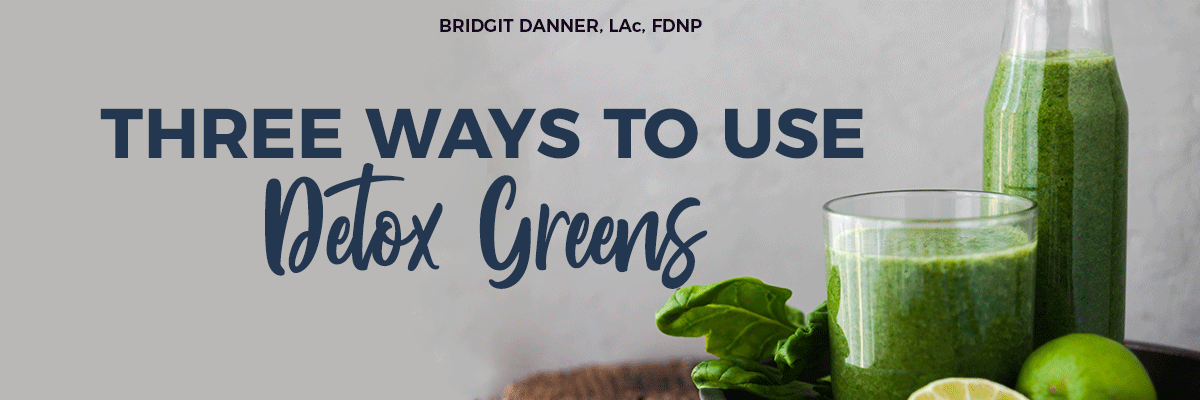We read a lot today about ecosystems and what they need to survive and thrive. For example, scientists know that African elephants help maintain the savanna for grazing animals by knocking down trees. Researchers are also closely studying forest ecosystems to learn more about the increase in the severity of wildfires.
However, did you know that your body is its own ecosystem? It is.
One of the most delicate -- and yet most important -- of these carefully-balanced ecosystems involves bacteria in the digestive tract. As you know, we need both “good” and “bad” microorganisms in our bodies.
However, factors such as stress, pollution, and an unhealthy diet can cause you to have an oversupply of “bad” bacteria in your body, especially in your gut. This imbalance can lead to a host of health problems, including obesity, diabetes, inflammatory bowel disease (IBD), liver disease, certain cancers, HIV, and autism. (1)
Your gut microbiome includes a community of literally trillions of fungi and bacteria that live, grow, and multiply in your gastrointestinal tract. These tiny organisms have a direct impact on your body weight, immune system, appetite, and even your mood.
Today, I’d like to discuss the foundation of our body’s microbial ecosystem -- keystone probiotic strains. We’ll look at the definition of keystone strains, their importance to your health, and how you can maintain a healthy balance in your body.
What Are the Keystone Probiotic Strains?
Even though you have heard a lot about probiotics, you probably are less familiar with the term “keystone strains.” Yet, as the name “keystone” indicates, they are the bacteria most responsible for a healthy gut.
Keystone bacteria in your gut can be divided into three types, and healthy people have a balance of all three.
Following are the three keystone strains and the roles they play in your health.
Keystone Probiotic 1: Akkermansia Muciniphila (A. mucin)
Also known as A. mucin, Akkermansia muciniphila, was first identified in 2004. This keystone strain thrives on the mucus layer of the lining of the gut. Scientists think that the organism helps regulate this important protective layer. When the layer is disturbed, inflammation, and an increased risk of infection can result. (2)
A. mucin accounts for up to 4% of all intestinal bacteria in healthy adults. It plays a vital role in maintaining your metabolism, which helps control your weight, cholesterol, and blood sugar levels.
A study that was published in Gut, a BMJ journal, found that a higher amount of Akkermansia mucin in the body is associated with a healthier metabolic status. In another clinical trial, researchers found the following results when the population of A. mucin increased in obese study participants:
lowered cholesterol
improved sensitivity to insulin
lowered body weight
less body fat
Lower levels of A. mucin are associated with metabolic disorders like obesity or type 2 diabetes. (5)
Keystone Probiotic 2: Faecalibacterium Prausnitzii (F. Prau)
First identified in 2002, Faecalibacterium prausnitzii, which often is abbreviated as F. prau, helps provide a barrier that prevents toxins and undigested food particles from escaping from your gut into your colon and throughout your body via the bloodstream.
F. prau, which represent more than 5% of the bacteria in the intestines of healthy adults, help boost the immune system.
Researchers are finding that people with intestinal disorders such as Crohn's disease, ulcerative colitis, and colorectal cancer have very low F. prau populations in their guts.
Higher than normal levels are associated with skin conditions like psoriasis (6, 7)
Keystone Probiotic 3: Bifidobacteria
This keystone bacteria strain supports the immune system from birth onward. According to a 2019 study published in Pediatrics, babies born with high levels of Bifidobacteria had better responses to vaccines at the age of two.
Bifidobacteria also produce butyrate, which researchers believe can offer protection from colon cancer and gastrointestinal disorders. These beneficial bacteria also help digest dietary fiber, prevent infection, and produce vitamins and other essential body chemicals. They make up less than 10% of the bacteria in the gut. (8, 9)
Now that you know the three keystone strains definitions, let’s examine why they are missing or depleted in some people and how this loss affects our health.
Why Might You Be Missing Some Keystone Probiotic Strains?
Unfortunately, we can look to our changing environment as the culprit for what can be described as a pyramid collapse of these beneficial gut bacteria.
Although they work as powerhouses in the body, the balance of keystone strains is a delicate one.
Your balance of intestinal bacteria can be depleted by the following factors:
overuse of antibiotics
a high-sugar, high-fat diet
exposure to weed killers and pesticides
chronic stress
sedentary lifestyle
In her article “How Modern Life Depletes Our Gut Microbes” for NPR, writer Michaeleen Doucleff interviews microbiologist M. Gloria Dominguez-Bello who studied the gut bacteria of an indigenous tribe that lives at the border of Venezuela and Brazil.
Dominguez-Bello shares that as cultures around the world have become more “Westernized,” the people have lost bacteria species in their guts. Doucleff puts it this way: “Americans' digestive tracts look like barren deserts compared with the lush, tropical rain forest found inside indigenous people.” (10)
So, is there any good news in all of this? Yes, there is. You can reset your gut bacteria, thereby boosting your overall health. Healthy guts do not lack specific strains; they lack a diversity of gut flora. You can establish a better diversity of keystone strains and keep your gut healthy with smarter lifestyle and diet choices and with probiotic supplements. Let’s see how.
How Can You Restore Balance to Your Gut?
Learn What Is Going on in Your Gut
You can’t fix your gut if you don’t know what is broken. So, a positive first step in the right direction is to measure your keystone strains with a GI-MAP test. The simple stool test can detect microbes that may be disturbing the balance in your gut and contributing to indigestion, inflammation, and immune system dysfunction. (11, 12)
I recommend the GI-MAP test by Diagnostic Solutions Lab. This clinical tool measures gastrointestinal microbiota DNA from a single stool sample. Since the results can sometimes be a little confusing to interpret, we now offer the GI-MAP testing service with our personalized review of your map and recommendations for supplements.
Support Bacterial Diversity with Your Diet
Now let’s talk about diet. You already know that yogurt contains “good” bacteria for a healthy gut, but what are some other foods to boost those important keystone strains in your gut? Here are my favorites.
Fermented foods are a natural source of probiotics. Consider adding the following delicious and healthy foods to your diet: kimchi, sauerkraut, kombucha, kefir, miso, tempeh, and fermented vegetables.
Probiotic-rich foods may help probiotics become more tolerant of environmental conditions (like pH and temperature changes). Here are some excellent choices for adding prebiotic-rich foods to your gut-friendly diet – asparagus, garlic, onions, bananas, chicory, Jerusalem artichoke, and whole grains. (13)
Other gut-friendly foods I highly recommend are avocado, lean proteins, and leafy greens.
Reduce Your Stress
Another way to increase a healthy balance of keystone strains in your gut is through stress management.
We all are under much more stress these days due to the pandemic, social unrest, and natural disasters. Even before the events of 2020, scientists have known that stress can have a negative impact on the gut. You know it too if you’re one of those people who gets stomach aches when you have to make a presentation or interview for a new position.
Studies on animals have shown that psychological stress -- even when it is short-lived -- can disrupt that delicate gid-bacteria-bad bacteria we have been discussing. So, you just imagine the havoc stress is causing many of us during this time of chaotic world events. (14)
In humans, psychological stress, environmental factors such as extreme temperatures and noise, and sleep deprivation can all contribute to an unhealthy digestive system. I recommend non-invasive stress management tools like deep breathing exercises, meditation, yoga, regular exercise, and a regular bedtime routine to promote better sleep.
Use Antibiotics Wisely
As I mentioned when I listed some of the causes of a keystone strain imbalance at the beginning of this article, the overuse of antibiotics is another contributing factor to gut imbalance. Although antibiotics can save lives when used to fight bacterial infections, their overuse or misuse has led to antibiotic-resistant bacteria. According to data from the Centers for Disease Control and Prevention (CDC), 30% to 50% of antibiotic use in U.S. hospitals is either unnecessary or inappropriate. (15)
Antibiotics also can kill “good” bacteria that are necessary for a healthy gut. A study published in 2018 by Nature Microbiology shows that it can take six months for a healthy gut with beneficial bacteria to return after a course of antibiotics. (16)
A fundamental way to reset your gut is by taking a spore-based probiotic supplement. I highly recommend our MegaSporeBiotic.
Strategically Use a Quality Probiotic
As I discussed in my previous blog, most probiotics on the market today are produced in an aerobic lab and cannot survive in the large intestine where there is no oxygen. On the other hand, spore-based probiotics are designed and manufactured to survive harsh digestive conditions and arrive at the intestines intact. More than 10 current clinical trials are exploring the potential therapeutic role of spore-based probiotic supplementation in the treatment of health conditions, including “leaky gut syndrome.” (17)
When spore-based probiotics like MegaSporeBiotic reach the colon, they are able to boost the populations of your keystone probiotic strains, improving the necessary balance of microorganisms. In addition to increasing microbial diversity, MegaSporeBiotic supplements (along with a healthy whole foods-based diet and other dietary and lifestyle changes that may be necessary) can help heal a leaky gut, decrease symptoms of IBD and IBS, and boost immunity.
This all-spore supplement helps recondition and reset the gut by encouraging the growth of those essential keystone strains. Basically, the bacillus strains in the supplement starve the “bad” bacteria while feeding the “good” bacteria, thereby improving gut strength and function.
Here’s something incredible -- the supplement helps germinate more than 80 species of those friendly bacteria in your gut. That’s amazing!
Our clients have had real success with MegaSporeBiotic. And it’s helpful to know that this supplement does not require refrigeration and has a five-year shelf life. You can order it on its own or as part of our Daily Essentials Kit.
Try Megaspore today and be on your way to a healthier gut complete with keystone strains!
New to our shop? Use code WELCOME10 for 10% off your first order. We also offer free shipping in the US over $97.
If you already know you love MegaSpore, I recommend that you try out our subscription service. Get an extra discount on your order and never miss a month when you subscribe!
Bridgit Danner, LAc, FDNP, is trained in functional health coaching and has worked with thousands of women over her career since 2004. She is the founder of Women’s Wellness Collaborative llc and HormoneDetoxShop.com.
Check out her easy 5-Day DIY Detox Guide here!













If you are dealing with any kind of gut dysfunction, immunoglobulins may be a key component to your healing. You may already know a little about immunoglobulins or this might be the first time you’ve heard of them. In either case, my goal with this article is to provide you with the info to make a wise decision for your needs.